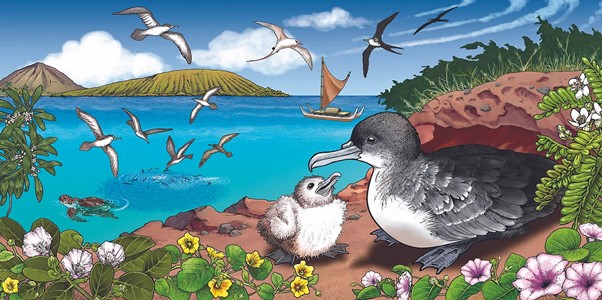
A Wedge-tailed Shearwater and its chick at the burrow entrance, artwork by the Freeman Seabird Preserve
News is in on the fortunes of three protected breeding populations of Wedge-tailed Shearwaters Ardenna pacifica on the main Hawaiian Islands, as reported on Facebook by Pacific Rim Conservation and the Hawai‘i Audubon Society’s Freeman Seabird Preserve.
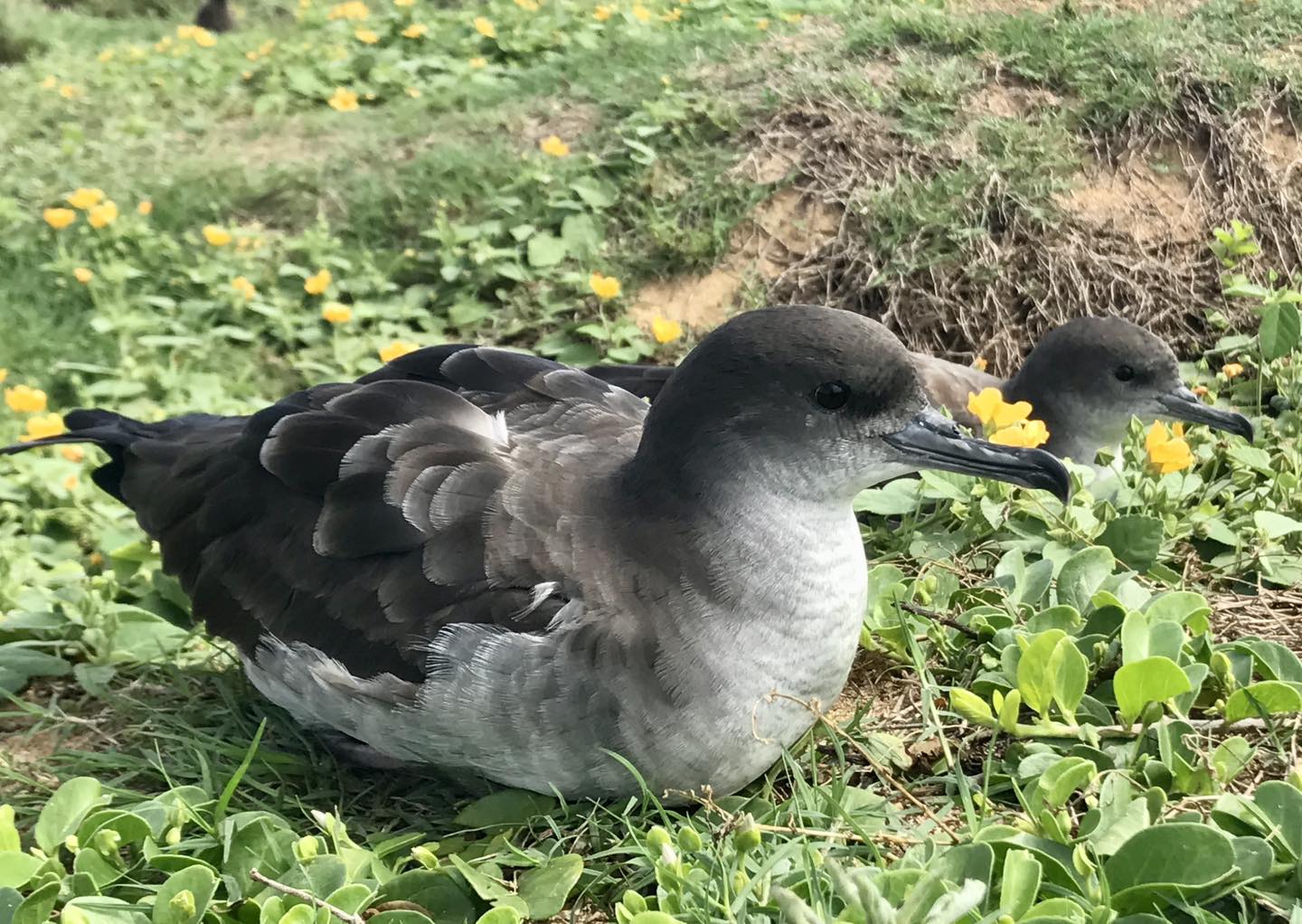
Wedge-tailed Shearwaters, photograph by Pacific Rim Conservation
Kaena Point Natural Area Reserve, Oahu
In the Kaena Point Natural Area Reserve on the island of Oahu, Wedge-tailed Shearwaters have set another breeding record. Pacific Rim Conservation writes “our annual count this week showed an all-time high of 13 399 total nests (that's 26 678 individual birds), and 5,898 chicks that are ready to fledge from those nests. This is truly amazing given that the birds only began nesting at Ka`ena in 1994, and only had 317 chicks out of 3777 nests (only 8% of chicks survived) the year the fence was built. Predator exclusion fences make the difference between barely surviving and thriving for many of our native species.”
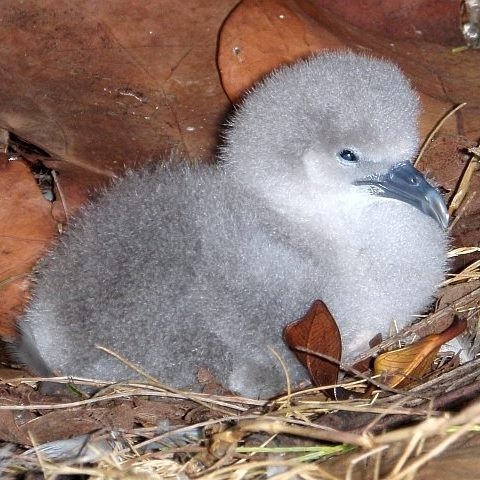
A Wedge-tailed Shearwater chick in its burrow, photograph by Pacific Rim Conservation
Freeman Seabird Preserve, Oahu
Wedge-tailed Shearwaters also breed on Oahu within the Freeman Seabird Preserve, described as the only colony on the island’s south shore. “This year we started out with more nests, but a higher proportion failed compared with last year. In 2022 we counted 322 chicks on 14 September, out of 395 nests with eggs and chicks the previous 14 July. In 2023 we counted 308 chicks on 14 September out of 427 nests containing incubating adults or unattended eggs on 14 July. This was another record count, despite yielding only four more nests than the previous year. The preserve’s website states that “this unique urban colony has quadrupled in size, from less than 200 breeding birds [in 2009] to over 800 breeding birds.” Although not protected by a predator-proof fence, surveillance and predator control with traps is ongoing during the breeding season, to minimize predation by rats, cats, and mongooses on breeding shearwaters (click here).
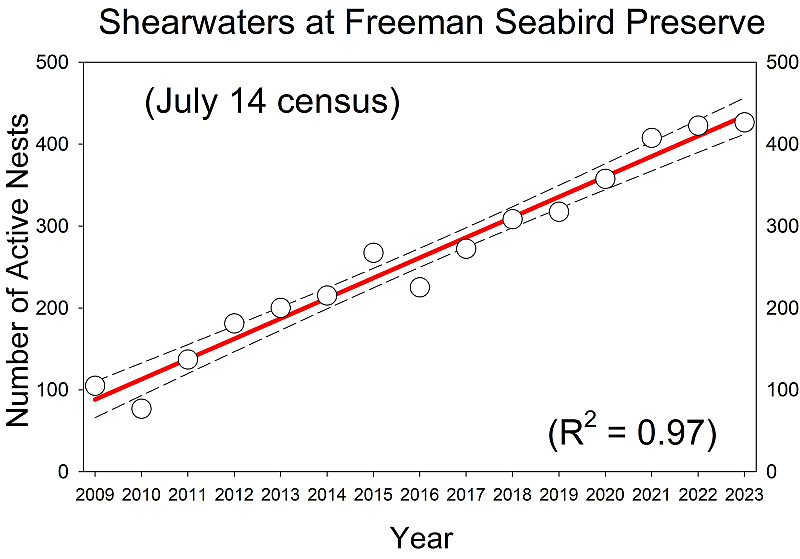
Increase in numbers of Wedge-tailed Shearwaters breeding in the Freeman Seabird Preserve, 2009-2023
Kilauea Point National Wildlife Refuge, Kauai
Over on the Hawaiian island of Kauai, the shearwaters are also doing well behind a fence according to Pacific Rim Conservation: “It's wedgie week at Kilauea Point National Wildlife Refuge (KPNWR). Approximately 21 000 Wedge-tailed Shearwater pairs nest at KPNWR, and over the last few days our team has been hard at work monitoring 600+ nests across the refuge. This dataset provides us with a baseline of Wedge-tailed Shearwater reproductive success prior to the completion of the refuge's new predator exclusion fence. In the future these surveys will be repeated so that we can study the effectiveness of our management actions.” The new fence was announced as finally completed on 24 October 2023 after a year and a half of construction (click here).
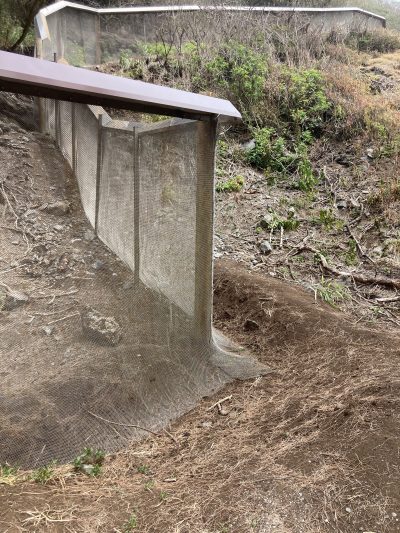
Still under construction. The new fence’s ground skirt to halt entry by digging predators is still to be buried at Kilauea Point, photograph by Scott Yunker (click here)
A predator-proof fence also protects breeding seabirds within Oahu’s James Campbell National Wildlife Refuge. The Wedge-tailed Shearwater with an estimated global population of over 5.2 million birds is not considered nationally or globally threatened.
John Cooper, Emeritus Information Officer, Agreement on the Conservation of Albatrosses and Petrels, 16 November 2023

 Français
Français  English
English  Español
Español